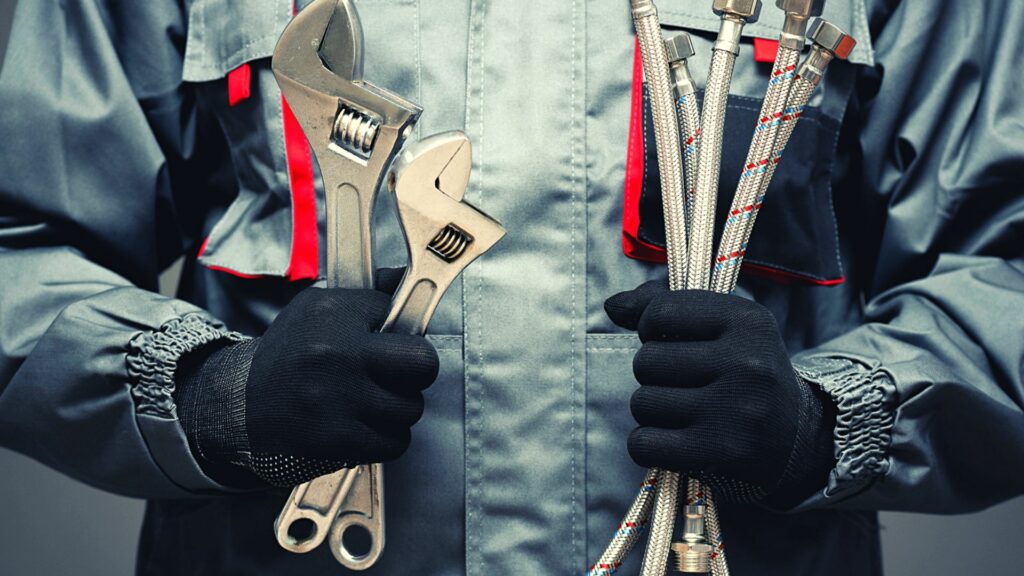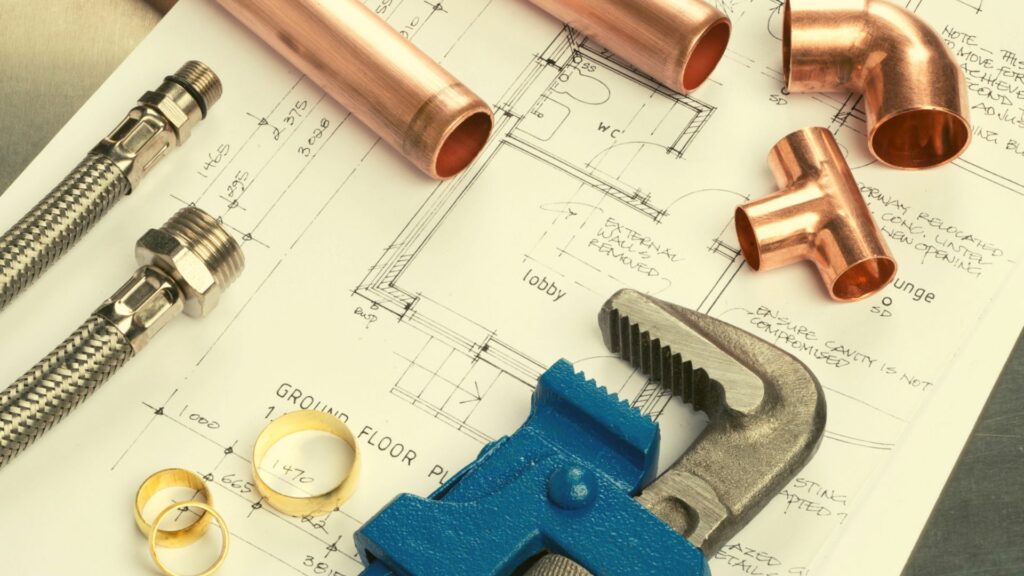It is easy to assume that commercial plumbing is no different from residential plumbing as they both deal with water supply and drainage systems. The difference between commercial and residential plumbing is best looked at in terms of usage and scale.
Commercial plumbing, unlike residential plumbing, is very demanding as it deals with water supply and drainage systems for commercial buildings, public spaces, and industrial facilities, which typically have extensive plumbing systems. Residential plumbing systems are far less demanding.
Commercial plumbing operates unlimitedly, while residential plumbing is done in homes. Commercial plumbing covers everything, including public restrooms, swimming pools, and manufacturing facilities. Commercial plumbing involves more extensive equipment, larger buildings or spaces, and bigger plumbing problems.
Table of Contents
The major differences
The following are the significant differences between commercial and residential plumbing:
- Size: Commercial plumbing deals with larger buildings and, therefore, more complex plumbing systems. Additionally, commercial plumbing deals with public spaces or facilities with much more usage than a typical home.
Consequently, a commercial plumbing system is subjected to more wear and tear and requires much more maintenance than a residential one. Additionally, if things go wrong, the damage may be catastrophic. Commercial plumbing projects are therefore more time-intensive and labor-intensive.
- Multiple stories: A typical single-household home is spread over one story or two at most. On the other hand, commercial buildings may have several floors, each with plumbing fixtures. They also have to consider gravity and its role in water pressure. Commercial plumbing involves ensuring a consistent level of water pressure across multiple levels.
- Local codes: Commercial and residential plumbing must meet specific regulations. However, state plumbing codes for commercial codes are usually more strict and granular.
- Frequency of inspection: Commercial plumbing projects call for frequent and thorough inspections because these systems are subjected to more usage, leading to faster wear and tear.
- The complexity of issues: Commercial plumbing systems are at a higher risk of problems, as commercial buildings may have several levels, sinks, and drainage systems. These issues typically require complex repairs due to the complex pipework and drainage systems.
- Industry knowledge required: Commercial plumbing requires complex industry knowledge that residential plumbers do not need.
- Level of skill: Commercial plumbing involves installing, maintaining, and repairing large and complex pipework and drainage systems. Commercial plumbers must have the necessary skills and experience to diagnose and resolve design issues that residential plumbers may never encounter.
- Time: Commercial plumbers need to be flexible as they deal with commercial and public spaces that may not be closed to give the plumbers time to do their work. Commercial plumbing jobs may take several days to complete, and in such cases, the plumbers must create temporary plumbing facilities.
- Daily usage: A commercial plumbing system can be used by hundreds of people simultaneously, unlike a residential plumbing system used by a single household.

What is a commercial plumber?
A commercial plumber is a professional specializing in installing, maintaining, and repairing plumbing fixtures in commercial business settings such as office buildings, recreational areas, malls, restaurants, schools, hospitals, industrial and manufacturing facilities, and other massive buildings with multiple floors.
What is a residential plumber?
A residential plumber is a professional who installs, maintains, and repairs home plumbing systems. The work of a residential plumber may include fixing leaks, installing and repairing central heating systems, and repairing boilers.
Summary
The key differences between commercial and residential plumbing are usage and size. Residential plumbing is relatively more straightforward as it deals with home plumbing systems. Commercial plumbing involves much larger spaces with complex plumbing that hundreds of people may use.

